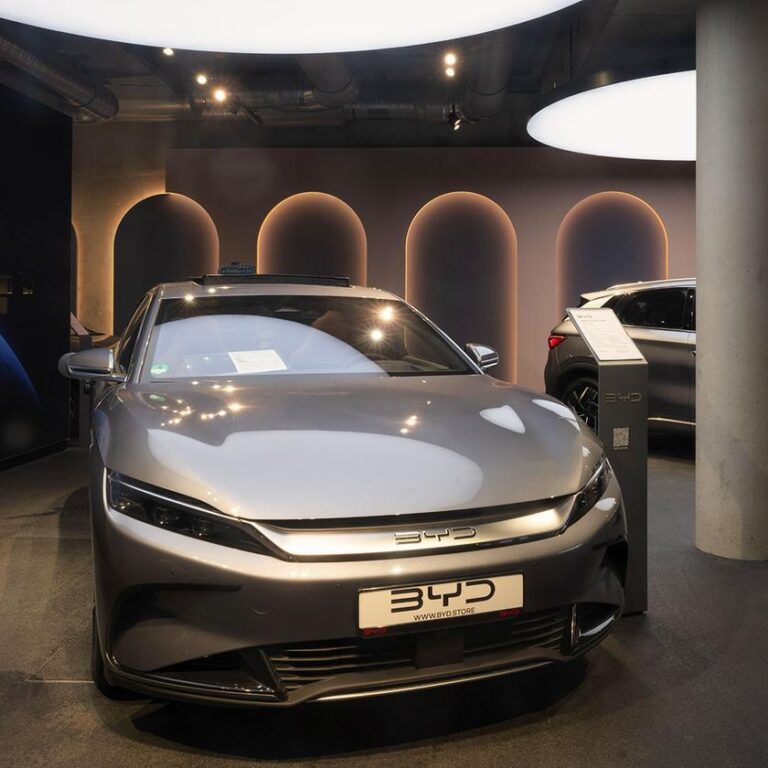Chinese automakers are making significant inroads into the European automotive market, overcoming longstanding barriers and trade tariffs that many expected to hinder their expansion. Leading the charge is BYD, alongside several other major Chinese manufacturers, as they report robust sales growth across key European countries. This development signals a shifting dynamic in the global car industry, challenging established players and prompting renewed discussions on trade policies and market competitiveness.
BYD and Chinese Carmakers Navigate European Tariffs to Boost Market Presence
Chinese automaker BYD, alongside several other prominent manufacturers from China, is aggressively adapting its strategies to overcome the hurdles imposed by European tariffs. Despite these financial barriers, the companies are leveraging local partnerships and adjusting supply chains to maintain competitive pricing and secure a growing footprint in key European markets. Innovations in electric vehicle (EV) technology and tailored marketing campaigns aimed at European consumers have been instrumental in their resilience and expansion.
Critical to this growth is the focus on sustainability and affordability, aspects increasingly valued by European buyers. These carmakers have also emphasized:
- Enhanced battery efficiency to extend driving range
- Comprehensive charging infrastructure collaborations across major cities
- Localized production facilities in Europe to reduce costs and tariffs
| Company | European Market Share (2023) | Strategy |
|---|---|---|
| BYD | 5.4% | Local assembly + advanced EV tech |
| Geely | 3.1% | Joint ventures with European brands |
| XPeng | 2.7% | Direct sales with tailored models |
Strategic Pricing and Innovation Drive Chinese Electric Vehicles’ Competitive Edge
Chinese electric vehicle manufacturers have honed a pricing strategy that significantly undercuts many Western competitors, enabling them to penetrate the European market despite rising tariffs and geopolitical tensions. By leveraging economies of scale and streamlined supply chains, companies like BYD offer EVs at price points that appeal to cost-conscious consumers without sacrificing quality. This aggressive pricing is supported by a continuous push for innovation, particularly in battery technology and digital vehicle interfaces, which enhances vehicle efficiency and user experience.
Moreover, these carmakers are integrating advanced features that differentiate their models from traditional European offerings. Some of the key innovations include:
- Long-range batteries with faster charging capabilities
- Smart cockpit systems powered by AI for personalized driving
- Over-the-air updates keeping vehicles future-proof
- Competitive warranty packages to build customer trust
| Feature | BYD | European Average |
|---|---|---|
| Starting Price (€) | 28,000 | 40,000 |
| Battery Range (km) | 520 | 480 |
| Charging Time (80%) | 35 minutes | 45 minutes |
| Warranty (years) | 8 | 5 |
Policy Recommendations to Support Fair Trade and Sustainable Growth in European Auto Markets
To foster a balanced and competitive European auto market while ensuring sustainability, policymakers must consider multifaceted approaches that address both trade fairness and environmental goals. First, strengthening the enforcement of existing trade agreements and introducing targeted anti-dumping measures could prevent market distortions caused by unfair pricing strategies. Equally crucial is the establishment of transparent regulatory frameworks that facilitate the integration of foreign electric vehicles (EVs) without compromising local manufacturers by encouraging technology sharing and joint ventures.
Moreover, incentivizing green innovation and sustainable manufacturing practices across the supply chain will align industrial growth with Europe’s climate ambitions. Financial subsidies, tax breaks, and direct investment into domestic EV technology development should be paired with stricter environmental standards for imported vehicles. Below is a summary of potential policy tools to achieve these objectives:
- Anti-dumping measures: Prevent underpriced vehicle imports.
- Joint R&D funding: Promote collaborative innovation between European and Chinese firms.
- Green certification incentives: Reward eco-friendly production methods.
- Tariff adjustments: Dynamic tariffs based on sustainability criteria.
| Policy Focus | Intended Impact | Short-term Outcome |
|---|---|---|
| Trade Enforcement | Level playing field | Reduced unfair competition |
| Technology Collaboration | Innovation boost | Enhanced local EV tech |
| Environmental Standards | Cleaner production | Lower emissions |
| Incentives & Subsidies | Market growth | Stronger domestic industry |
In Retrospect
As BYD and other Chinese automakers continue to gain traction in the European market despite ongoing tariffs, industry analysts suggest that their growing presence could reshape the competitive landscape. With aggressive pricing, expanding electric vehicle lineups, and increasing consumer acceptance, these manufacturers are poised to challenge established players in the region. Monitoring how European policymakers and legacy carmakers respond in the coming months will be crucial in understanding the evolving dynamics of the continent’s automotive sector.




